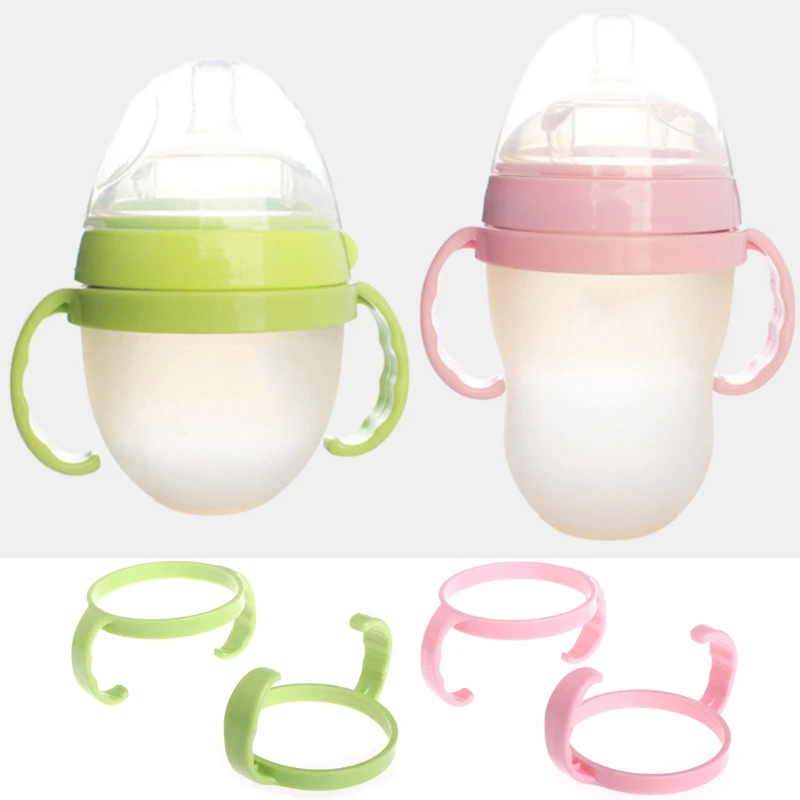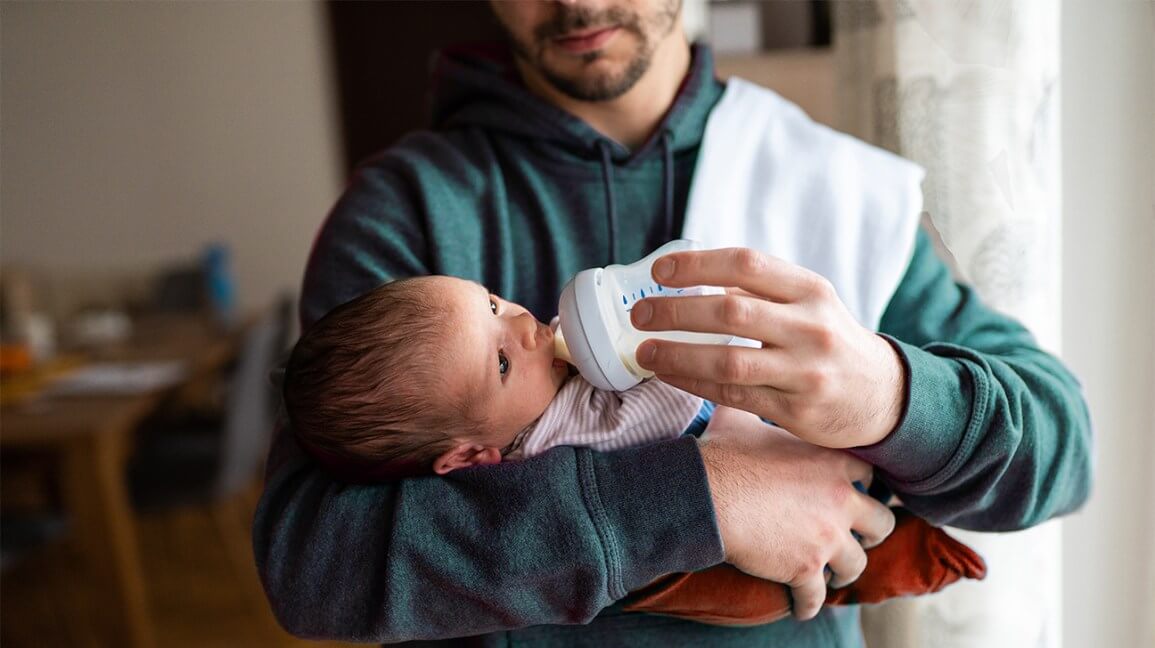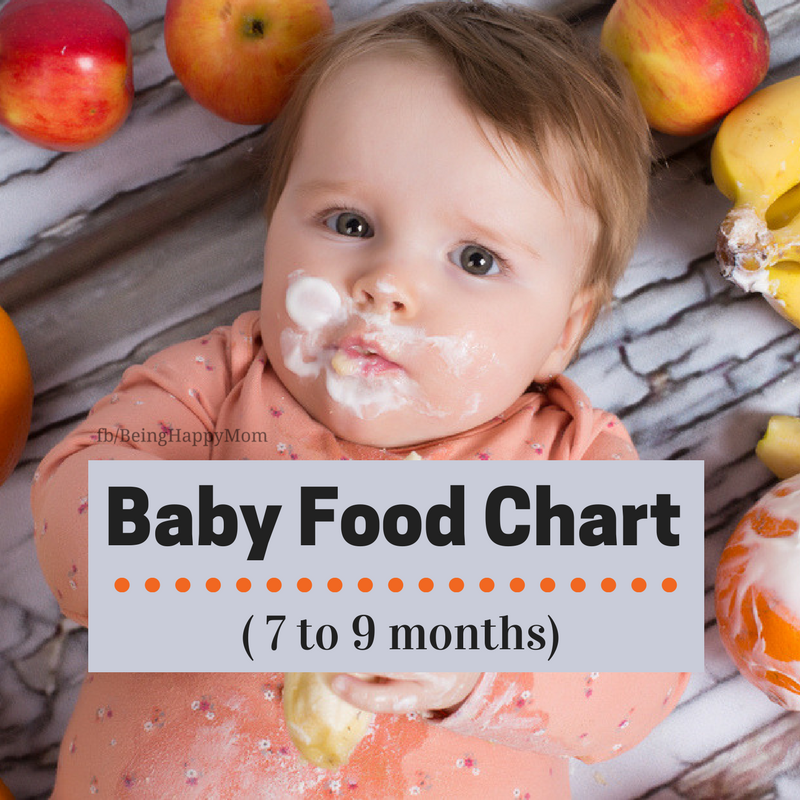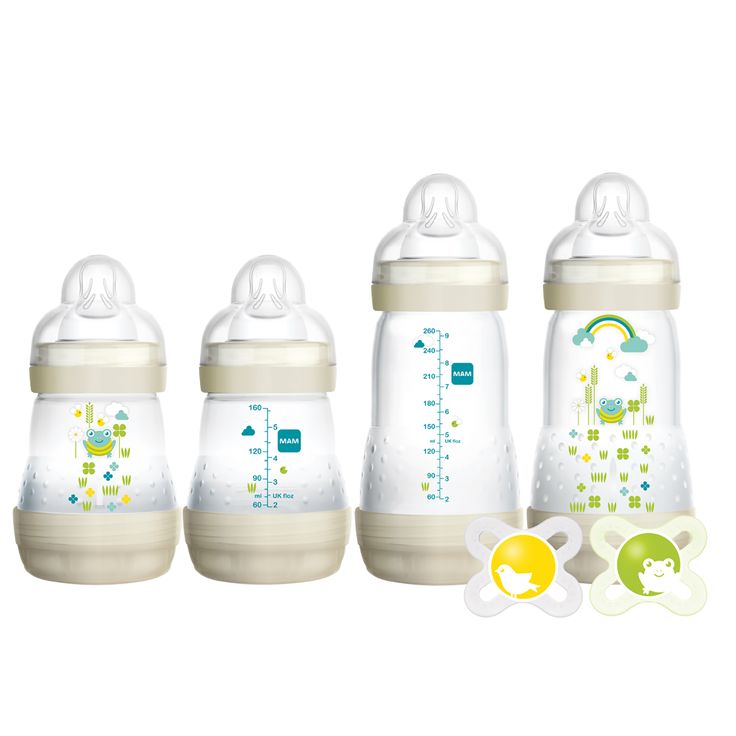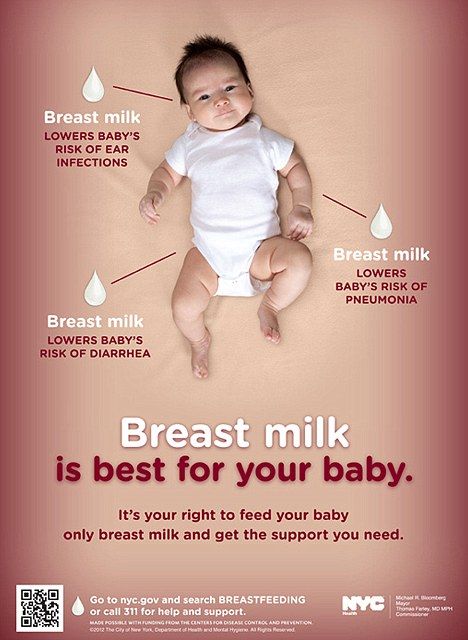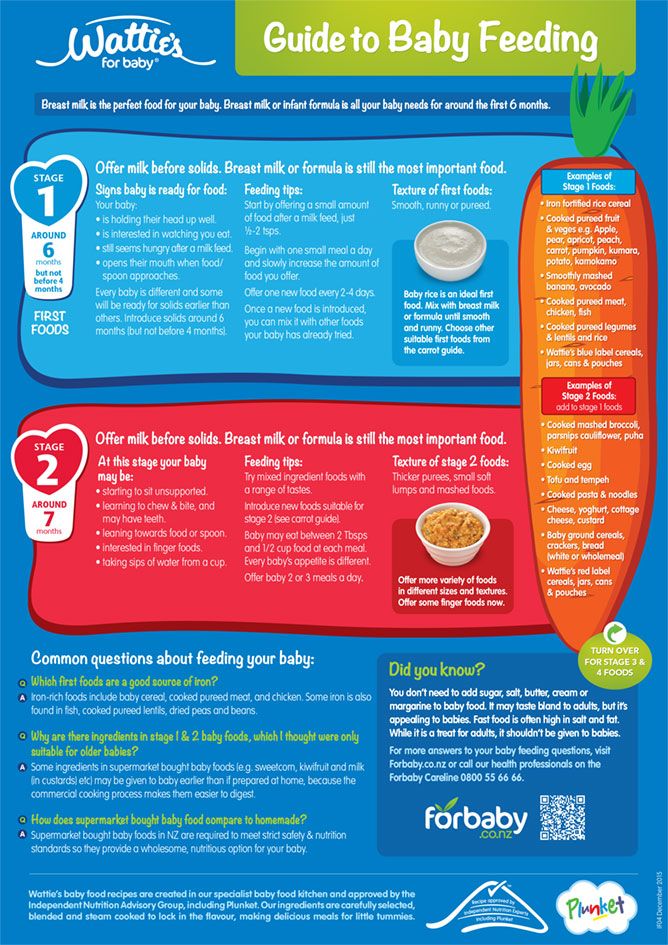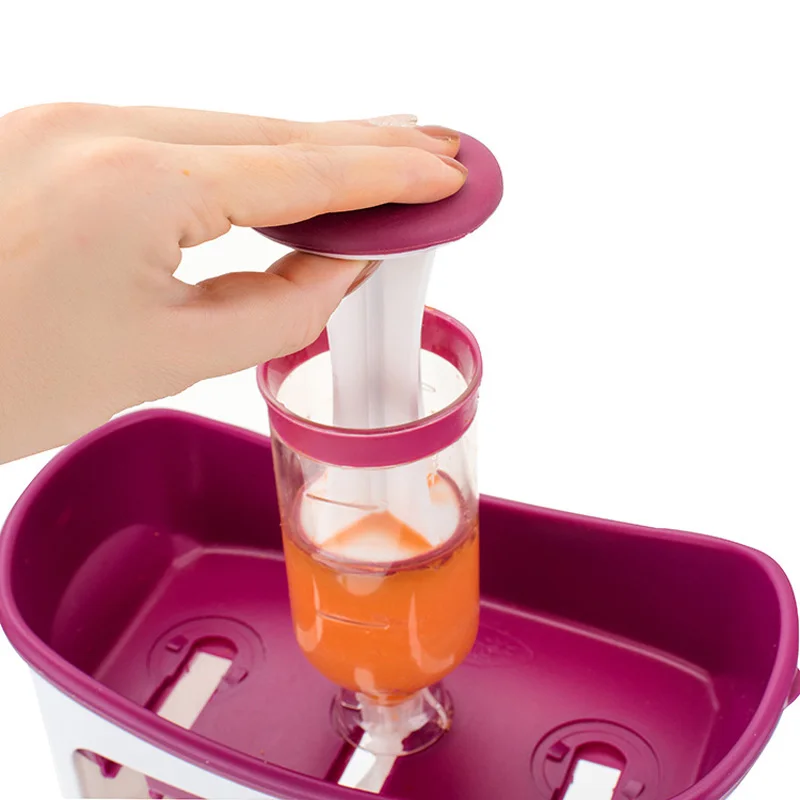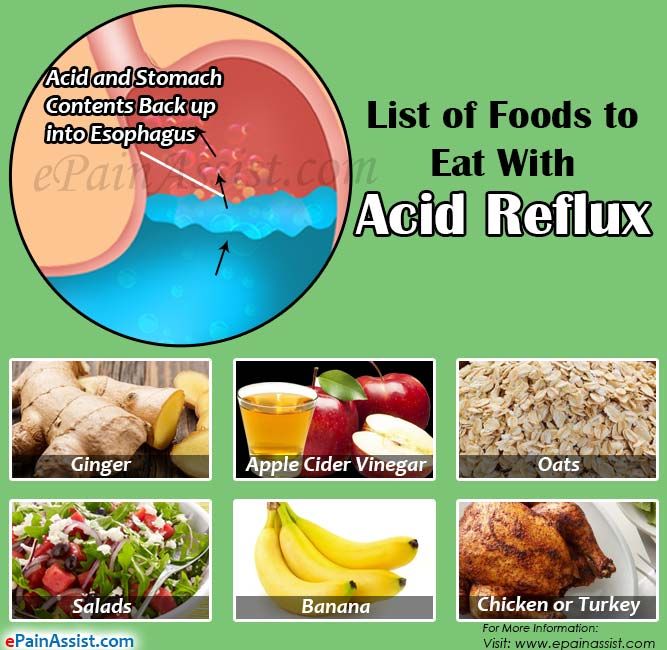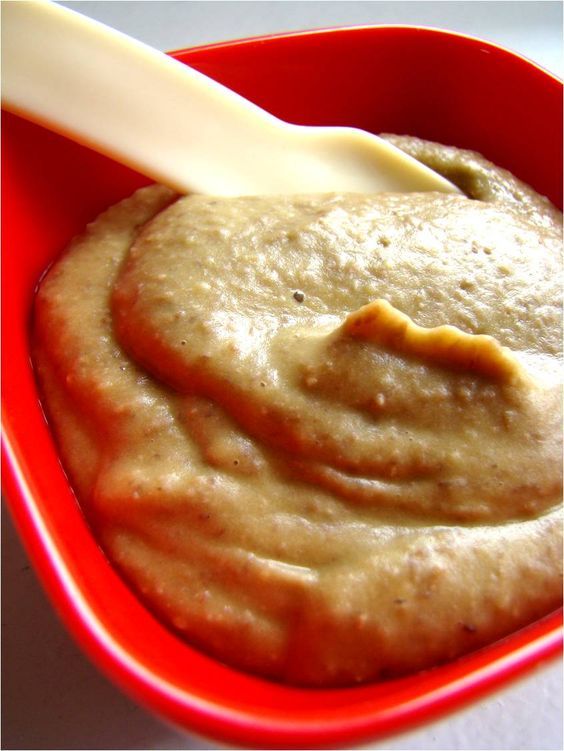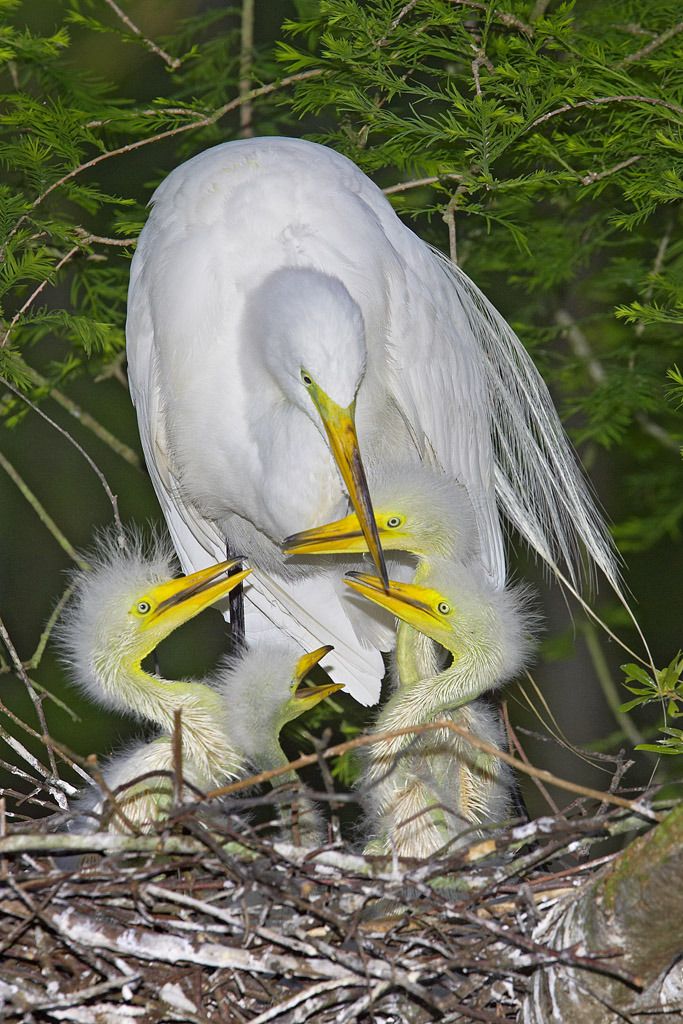Foods babies should not eat first year
Foods to avoid giving babies and young children
Salt
Babies should not eat much salt, as it's not good for their kidneys.
Do not add salt to your baby's food or cooking water, and do not use stock cubes or gravy, as they're often high in salt.
Remember this when you're cooking for the family if you plan to give the same food to your baby.
Avoid salty foods like:
- bacon
- sausages
- chips with added salt
- crackers
- crisps
- ready meals
- takeaways
Sugar
Your baby does not need sugar.
By avoiding sugary snacks and drinks (including fruit juice and other fruit drinks), you'll help prevent tooth decay.
Saturated fat
Do not give your child too many foods that are high in saturated fat, such as crisps, biscuits and cakes.
Checking the nutrition labels can help you choose foods that are lower in saturated fat.
See more on food labels.
Honey
Occasionally, honey contains bacteria that can produce toxins in a baby's intestines, leading to infant botulism, which is a very serious illness.
Do not give your child honey until they're over 1 year old. Honey is a sugar, so avoiding it will also help prevent tooth decay.
Whole nuts and peanuts
Whole nuts and peanuts should not be given to children under 5 years old, as they can choke on them.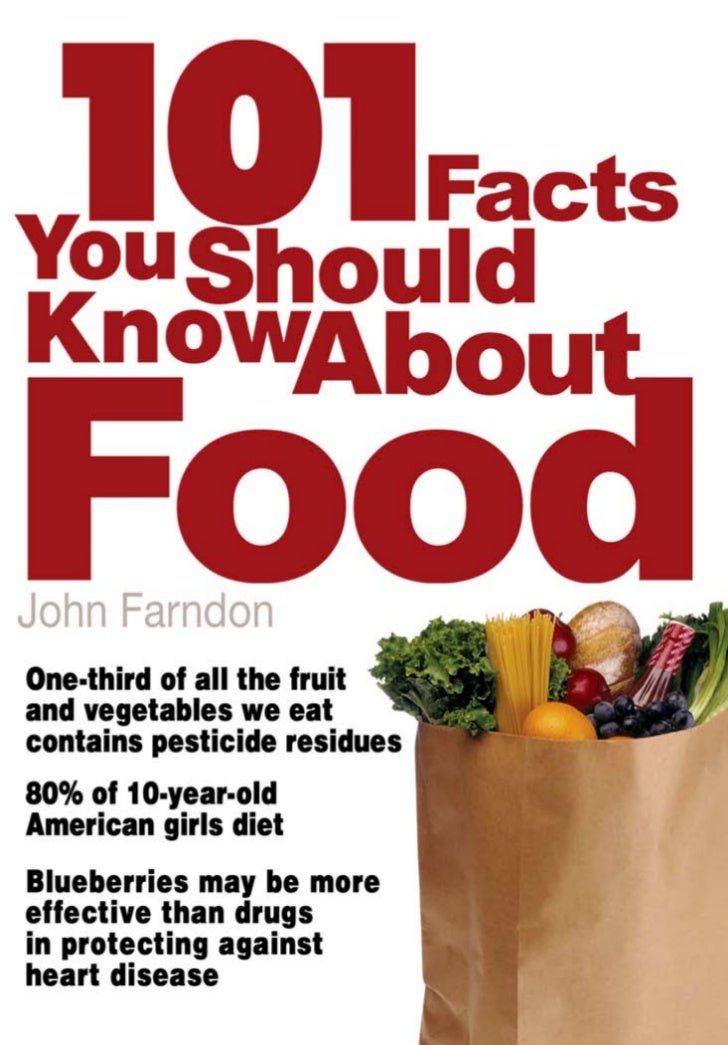
You can give your baby nuts and peanuts from around 6 months old, as long as they're crushed, ground or a smooth nut or peanut butter.
If there's a history of food allergies or other allergies in your family, talk to your GP or health visitor before introducing nuts and peanuts.
See more on food allergies in babies and young children.
Some cheeses
Cheese can form part of a healthy, balanced diet for babies and young children, and provides calcium, protein and vitamins.
Babies can eat pasteurised full-fat cheese from 6 months old. This includes hard cheeses, such as mild cheddar cheese, cottage cheese and cream cheese.
Babies and young children should not eat mould-ripened soft cheeses, such as brie or camembert, or ripened goats' milk cheese and soft blue-veined cheese, such as roquefort.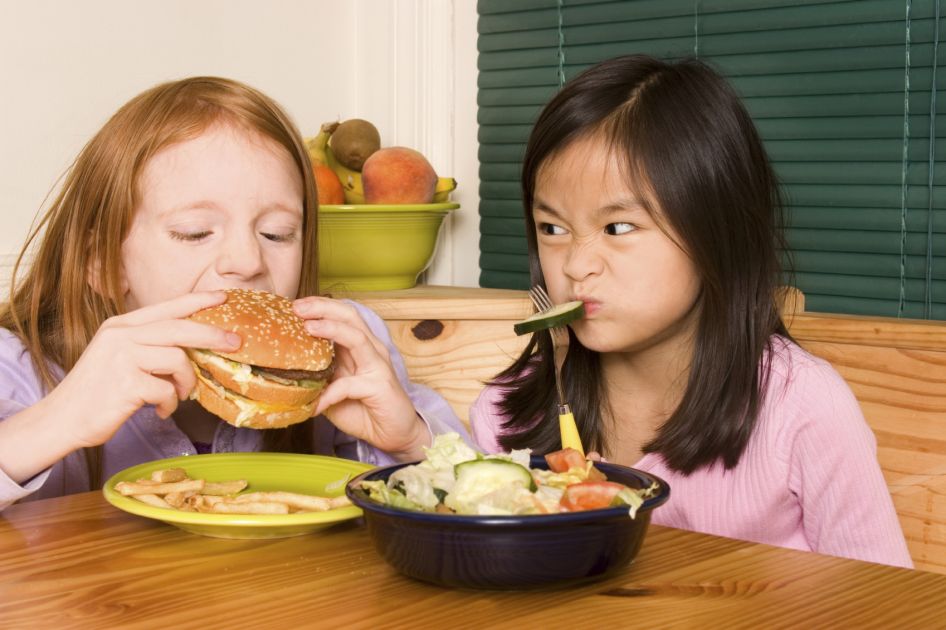 There's a higher risk that these cheeses might carry a bacteria called listeria.
There's a higher risk that these cheeses might carry a bacteria called listeria.
Many cheeses are made from unpasteurised milk. It's better to avoid these because of the risk of listeria.
You can check labels on cheeses to make sure they're made from pasteurised milk.
But these cheeses can be used as part of a cooked recipe as listeria is killed by cooking. Baked brie, for example, is a safer option.
Raw and lightly cooked eggs
Babies can have eggs from around 6 months.
If the eggs are hens' eggs and they have a red lion stamped on them, or you see a red lion with the words "British Lion Quality" on the box, it's fine for your baby to have them raw (for example, in homemade mayonnaise) or lightly cooked.
Hens' eggs that do not have the red lion mark should be cooked until both the white and yolk are solid.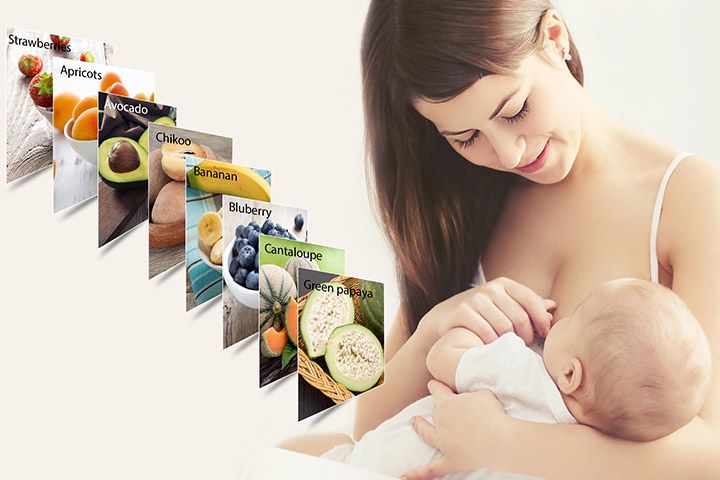 So should duck, goose or quail eggs.
So should duck, goose or quail eggs.
Avoid raw eggs, including uncooked cake mixture, homemade ice creams, homemade mayonnaise, or desserts that contain uncooked egg that you cannot confirm are red lion stamped.
Rice drinks
Children under 5 years old should not have rice drinks as a substitute for breast milk or infant formula (or cows' milk after 1 year old) as they may contain too much arsenic.
Arsenic is found naturally in the environment and can find its way into our food and water.
Rice tends to take up more arsenic than other grains, but this does not mean that you or your baby cannot eat rice.
In the UK, there are maximum levels of inorganic arsenic allowed in rice and rice products, and even stricter levels are set for foods intended for young children.
Do not worry if your child has already had rice drinks.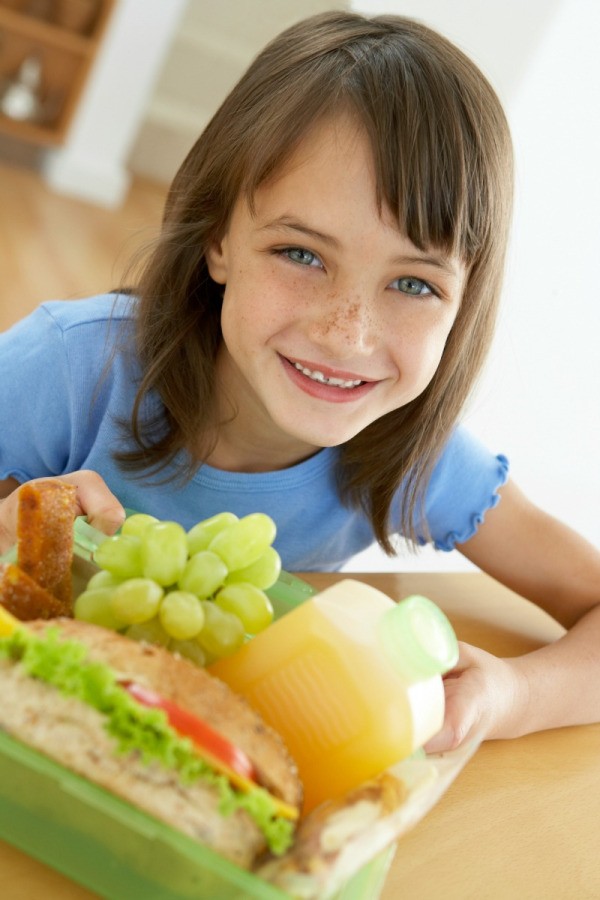 There's no immediate risk to them, but it's best to switch to a different kind of milk.
There's no immediate risk to them, but it's best to switch to a different kind of milk.
Raw jelly cubes
Raw jelly cubes can be a choking hazard for babies and young children.
If you're making jelly from raw jelly cubes, make sure you always follow the manufacturers' instructions.
Raw shellfish
Raw or lightly cooked shellfish, such as mussels, clams and oysters, can increase the risk of food poisoning, so it's best not to give it to babies.
Shark, swordfish and marlin
Do not give your baby shark, swordfish or marlin. The amount of mercury in these fish can affect the development of a baby's nervous system.
Further information
For more information and advice about babies and food, see:
- food allergies in babies and young children
- your baby's first solid foods
- baby and toddler meal ideas
Ten foods to avoid feeding your baby (and common myths busted)
I was not going to write a post on foods to avoid in the first year with your baby. I thought there was so much information on the internet already, I did not need to repeat what everyone else was saying.
I thought there was so much information on the internet already, I did not need to repeat what everyone else was saying.
But after several parents in a row reached out to me asking to clarify the confusing and contradicting information they found online, I decided to step in.
In this post, I will first dispel some of the popular myths floating online. And then share a list of foods that are important to avoid in the first year and explain the reasons for it.
So, first, let’s dispel some myths:Myth number 1:
Eggs whites are not safe for babies. Not true. Only a very small percentage of babies are allergic to egg whites. If you think your baby is, definitely check with your doctor and avoid egg whites if needed.
All the other babies can eat eggs, including egg whites, from the moment the solids are started. In fact, introducing potentially allergenic foods earlier rather than later may help prevent food allergies in the future.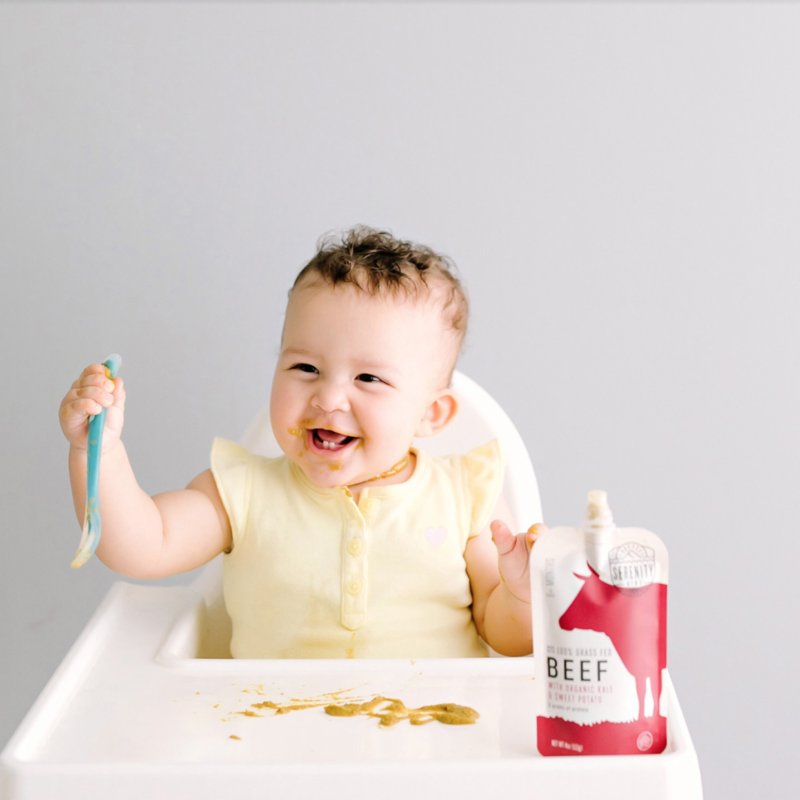
That’s why the American Academy of Allergy, Asthma, and Immunology now recommends not delay the introduction of eggs, dairy, fish, shellfish, nuts, tree nuts, soy, and wheat.
Myth number 2:
Your baby cannot have nuts before he turns 3. Not true. Your baby can have nuts, just not in the whole form. Whole nuts are a choking hazard and should be avoided until 3-5 years, depending on your child’s ability to chew.
But it is perfectly fine and, in fact, recommended by allergy experts, to introduce nuts to babies in the form of nut butters and powders.
Read about 5 Safe ways to introduce peanuts to your baby.
Myth number 3:
Acidic food like citrus fruit, tomatoes, and berries cannot be served to babies. Not true. Some babies may develop a rash around their mouth – a type of skin irritation, but it is perfectly safe. The rash itself is not a sign of a food allergy, but just a skin reaction to the acid present in those foods.
I dedicated a big part of my Stress-Free Solids class to when and how to introduce potential allergens, both as finger foods and purees. I also talk about the two types of allergic reactions that may occur and the symptoms and action plans for each type. Food allergies are one of my special interests as a registered dietitian. I am a food allergy mom, too, and I am passionate about educating parents on how to prevent the risk of food allergies in the future and the ways to protect their babies and children should they develop a food allergy.
Myth number 4:
Vegetables are not safe for babies because of nitrates. Not completely true. It’s correct that certain types of vegetables, like beans, carrots, spinach, and squash, are higher in nitrates than others.
Ans it’s also true that they should be avoided in babies under 3 months, who at the biggest risk of nitrate poisoning because they can not metabolize it yet.
But, as we know, babies under 4 months are not ready for solids, anyway.
Read more about the signs of readiness for solids.
In fact, the American Academy of Pediatrics specifically stresses that:
“…home-prepared infant foods from vegetables (eg, spinach, beets, green beans, squash, carrots) should be avoided until infants are 3 months or older, although there is no nutritional indication to add complementary foods to the diet of the healthy term infant before 4 to 6 months of age.”
Besides, according to the same report, the biggest source of nitrates is well water, not vegetables. So it is absolutely fine to feed your baby all sorts of vegetables if 1/your baby is older than 4 months and 2/ if you wash veggies well before preparing them.
However, if you are using well water to make formula for your little one, make sure to check with your local health department to see if its nitrate levels are in check.
And here is the promised list of foods to avoid in the first year, based on the latest science:1.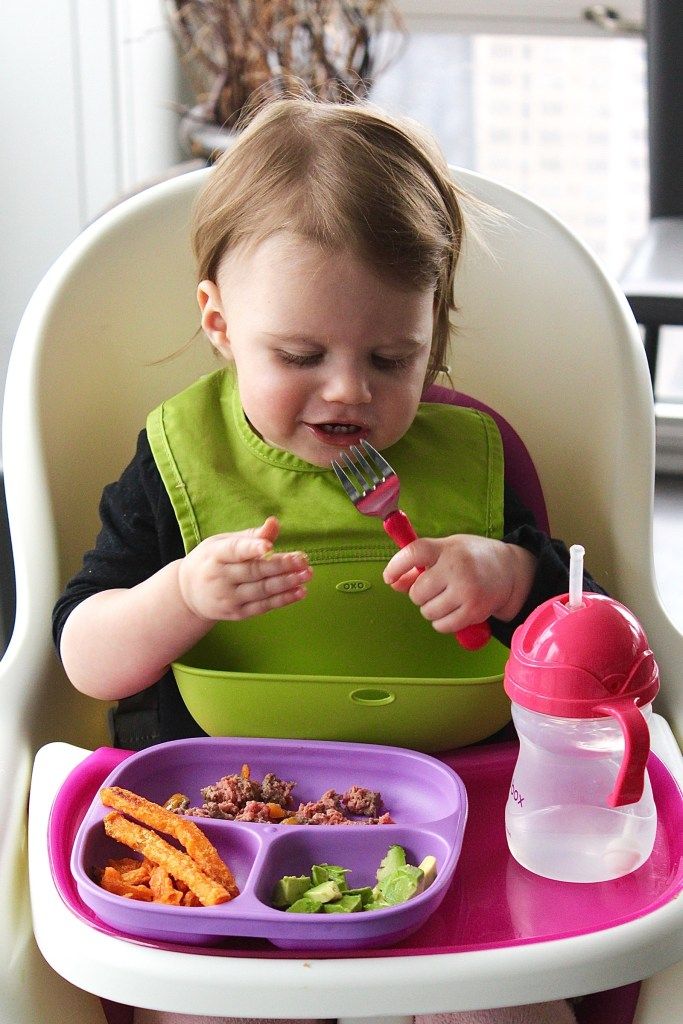 Choking hazard number 1 – hard round-shaped foods. This type of food can lodge in a baby’s throat very easily. Foods like popcorn, baby carrots, candy, hot dogs, whole grapes and whole nuts should be avoided.
Choking hazard number 1 – hard round-shaped foods. This type of food can lodge in a baby’s throat very easily. Foods like popcorn, baby carrots, candy, hot dogs, whole grapes and whole nuts should be avoided.
In fact, it is best to remove all small objects, edible or not, out of your baby’s reach. You will not believe the kind of things babies willingly put in their mouths!
So it may be time to go on a scavenger hunt, removing all the objects that are smaller than 1 3/4 inch, or 4.45 cm, from the areas where your child plays, eats or sleeps.
2. Choking hazard number 2 – hard fruit and vegetables that babies with teeth can bite off, but cannot chew. Raw apples or raw carrots are good examples. In fact, a recent research study showed that the most common food BLW (Baby Led Weaning) babies were choking on was raw apples.
My recommendation is either to cook hard fruit and vegetables to soften them or to grate them before serving them to the baby.
3. Choking hazard number 3 – sticky foods like nut butter. Sticky foods like peanut butter and other types of nut butter should never be fed to babies off a spoon. Instead, either mix them into purees or cereals or spread them in a thin layer on a toast.
Read about 6 nutritious toppings for your baby’s toast
4. Cow’s milk as the main drink. Cow’s milk in big amounts is not a safe drink for babies because of its low iron content and high levels of protein and minerals, which can be too much work for your baby’s immature kidneys.
It’s ok, however, to add a little milk to your baby’s cereal and serve cheese and yogurt from time to time.
In my Starting Solids the Stress-Free Way online program I use milk, yogurt, and cheese in a few recipes and give plenty of examples of balanced meals and portion sizes for babies of different ages, so make sure you check it out if you need more detailed guidance.
5. Honey. Well, in this case, it’s pretty straightforward.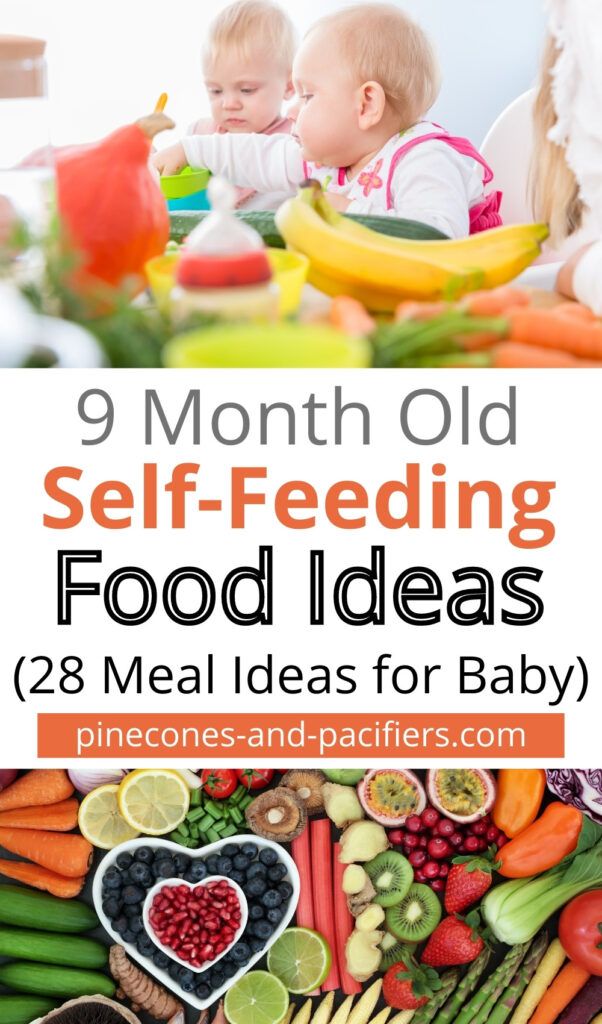 No honey until your baby turns one. Not even in commercial foods like Honey Cheerios. Honey can harbor Clostridium botulinum, a very dangerous bacteria that may cause a very serious condition called infant botulism.
No honey until your baby turns one. Not even in commercial foods like Honey Cheerios. Honey can harbor Clostridium botulinum, a very dangerous bacteria that may cause a very serious condition called infant botulism.
6. Undercooked eggs. Ok, this one is slightly trickier. Undercooked eggs may be dangerous for babies because of the salmonella risk.
However, in at least two countries you can buy a specific type of salmonella-free eggs (Safest Choice in the US and Red Lion Stamp in the UK).
If you are from a different country and you know a similar brand sold locally, please let me know in the comments.
Salmonella-free eggs have been either pasteurized in their shells or laid by chickens that have been vaccinated. So they are a great safe option for families because you can share some beautiful runny yolks dishes together and not worry about your baby’s safety.
7. Unpasteurized milk, cheeses, and deli meats. Cheeses made with raw unpasteurized milk and deli meats that have not been treated by high temperatures are not safe for babies because of the possible risk of listeriosis.
Raw milk may contain E Coli, salmonella, campylobacter and listeria. Enough said.
8. Fruit juice. This one may come as a surprise but, according to its fairly recent statement, the American Academy of Pediatrics does not recommend any fruit juice for babies under 1, due to its low nutritional value.
And I could not agree more. The first year of life is a period of very fast growth for babies. They need a lot of good nutrition, including fat, protein, iron and other micro and macro elements.
Fruit juice can fill the little tummies fast but is pretty low in important nutrients.
9. Fish high in mercury. Fish is an important part of your baby’s diet because it contains Omega 3 fatty acids, instrumental for brain development.
But some types are too high in mercury and should be avoided. Check this infographic from FDA to learn more:
10. Salt. A small amount of salt (under 1 gram a day) is safe for babies, but more than that can be too taxing for the kidneys.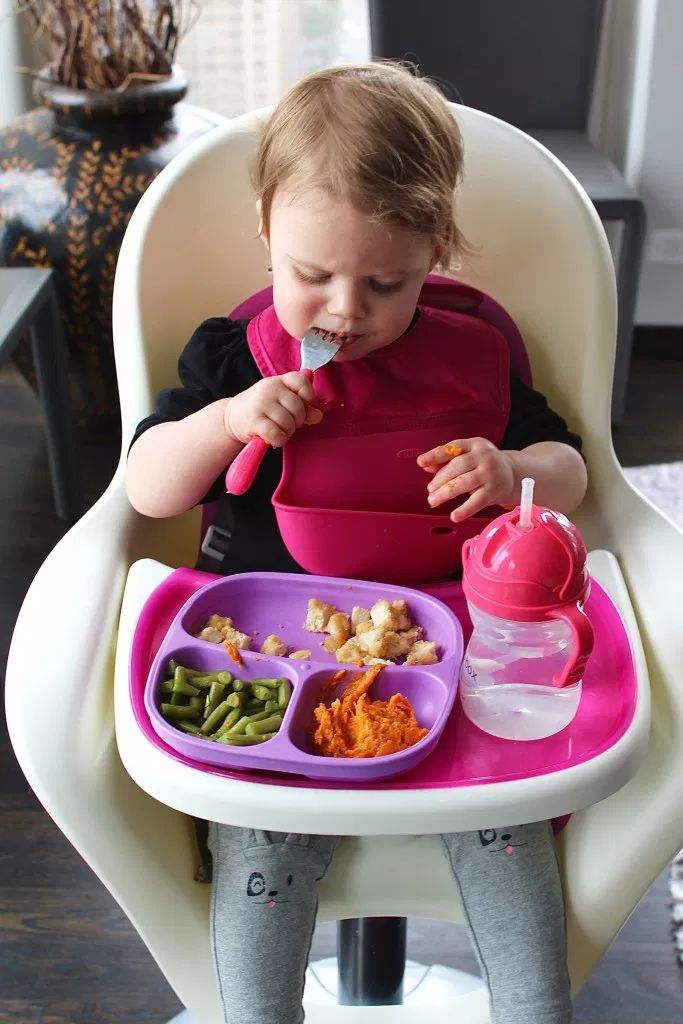
I recently wrote here about high sodium foods to avoid for babies and the best ways to interpret food labels.
You might also like:
Baby and toddler feeding milestones (a complete guide)
7 things you need to know before giving your baby family food
If you would like to get the whole framework and all the steps to start your baby on solids safely, using the mixed approach, check my Stress-Free Solids program – it’s completely online and has videos of babies eating both finger foods and purees, in addition to recipes, schedules and the latest scientific advice on introducing allergens. You will also learn how to progress between textures on time, so your baby learns to self-feed and eat table foods fast!
Tell me, which myths about foods to avoid have you seen online?
7 foods that are undesirable to give to children under one year old
Of course, modern mothers know that sausages should not be given to babies, soda and cream cakes.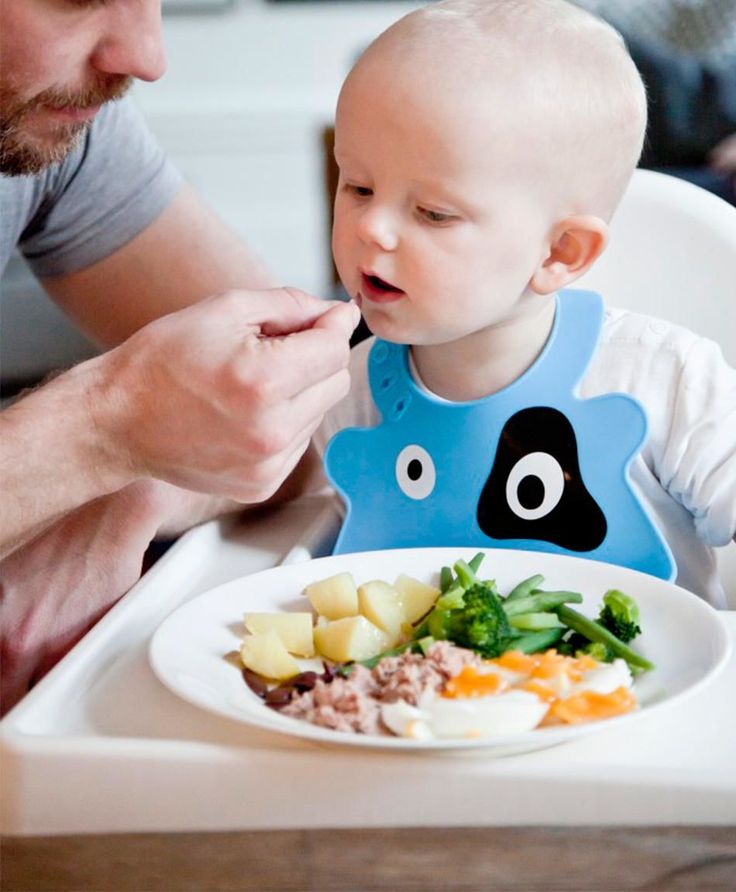 What else can not eat children under one year old? We made a list of 7 less obvious foods.
What else can not eat children under one year old? We made a list of 7 less obvious foods.
1. Salt
Excess salt in the diet is harmful to the baby's kidneys and can lead to swelling and dehydration. Of course, a lack of salt is also not useful, but in real life, with a normal diet, it practically does not occur: salt is contained in sufficient quantities in most foods, and there is no need to add salt on purpose. And if for us, adults, baby purees and cereals without salt and sugar seem tasteless and disgusting, don’t worry, for a baby, the situation is completely different.
The taste perception of young children is not yet spoiled by excessively sweet and salty foods, flavors and flavor enhancers. If your child refuses mashed broccoli, then most likely he just does not like the taste and texture of broccoli, and not at all the lack of salt.
2. Sugar
Everyone knows the dangers of excess sugar - dental problems, obesity, associated cardiovascular diseases and the risk of developing diabetes. However, it can be very difficult to refuse a cookie or candy to a child familiar with the sweet taste, and tears are usually inevitable. What to do?
However, it can be very difficult to refuse a cookie or candy to a child familiar with the sweet taste, and tears are usually inevitable. What to do?
The secret is simple - introduce foods with added sugar into your baby's diet as late as possible, at the earliest in the year, although it is better to wait until two years. The National Nutrition Optimization Program for Children aged 1 to 3 years recommends limiting sugar in the diet of toddlers 1 to 3 years of age to 25-30 grams per day, taking into account the sugar found in special baby foods, juices, yogurts, etc.
3. Honey
It would seem that honey is a wonderful and healthy alternative to sugar, so why is it not recommended for babies under one year old? In fact, the reasons several. First, honey can contain spores bacteria Clostridium botulinum. The immune system of adults and children older people can easily cope with them, but in babies they can cause a deadly disease called infantile botulism.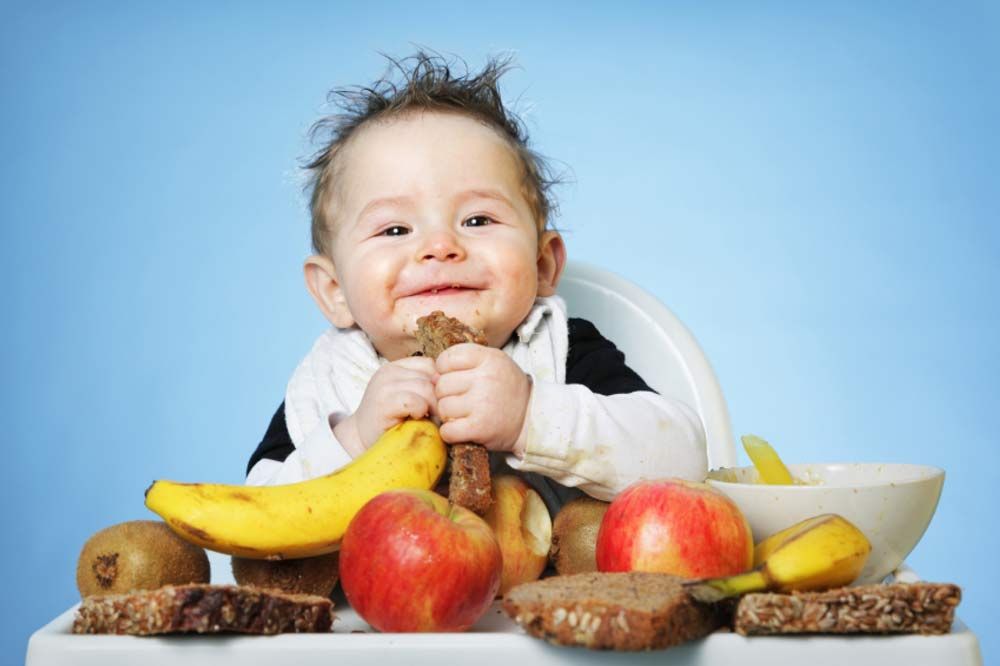
Secondly, honey is the strongest allergen, so it is better to postpone acquaintance with it until a later age.
4. Fruit juices and drinks
American Academy of Pediatrics (AAP) released in 2017 New recommendations for adequate intake of fruit juices in infants, young children and adolescents who begin with advice to completely avoid fruit juice for feeding infants life. According to AAP, excessive juice consumption can lead to diarrhea, overeating or, conversely, malnutrition, as well as to occurrence of dental caries*. At the same time, babies can and should be offered Whole fruit, mashed or pureed.
A various fruit drinks and nectars in addition to natural sugar from fruits often contain added sugar, which makes them perfectly unsuitable for feeding babies up to a year.
Breeding of juices and nectars with water does not completely solve the problem, since it does not reduce dental risks. If your child refuses to drink water, try compotes and fruit or herbal teas.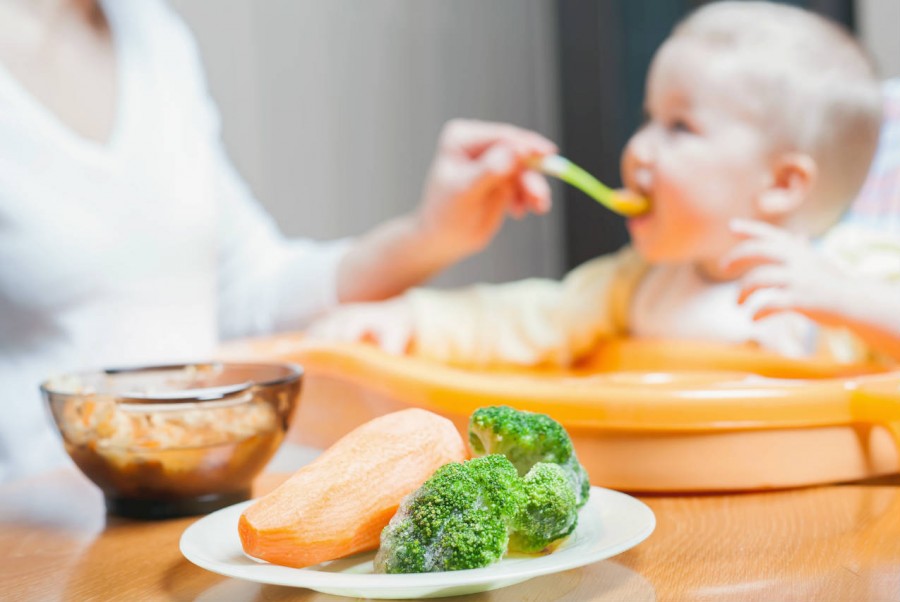
5. Foods that are easy to choke on
The danger of a product to children is determined by several characteristics: consistency, shape, and size. Most often babies gagging slippery, round, sticky, fibrous and hard products.
The most dangerous are all round and large enough to block the airways: lozenges, grapes, cherry tomatoes, nuts**. Not far behind in sad dangerous food rating other candies (especially sticky ones), fish bones and meat and, in fact, the meat itself ***.
Remember that theoretically a child can choke on any food, so never leave your baby unsupervised eating.
6. Egg white
Have you ever wondered why in all complementary feeding schemes is it the yolk, not the whole egg? Nothing surprising: egg protein is one of the strongest allergens. Up to a year is better limit the baby to only the yolk, and introduce the protein a little later.
Only make sure the eggs are thoroughly cooked. Raw and half-raw eggs may contain a bacterium that causes salmonellosis, a disease deadly for young children.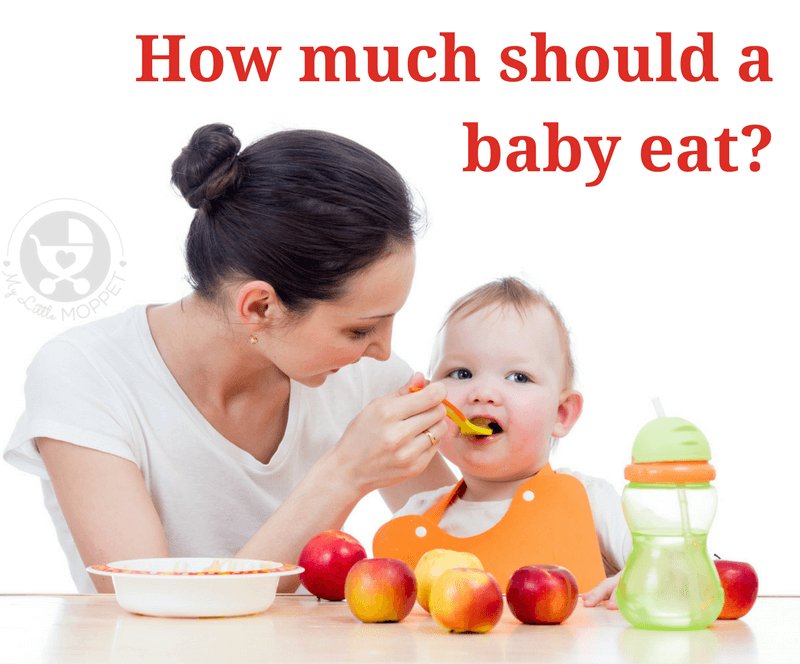
7. Cow and goat milk
Surprised? Whole cow's milk is the main cause of allergies in children under one year old. In addition, it contains a large amount of lactose, milk sugar, which some babies have difficulty digesting due to the fact that their gastrointestinal tract is not yet sufficiently developed. There are studies linking the early introduction of animal milk into the diet as a substitute for mother's milk or infant formula with an increased risk of iron deficiency anemia and type 1 diabetes. ****
Goat milk is actually not much different from cow milk, goat and cow are evolutionarily close, goat milk proteins are very similar in structure to cow proteins, and almost as often cause allergies.
It is advisable to introduce cow's milk into the diet of a child not earlier than 1 year. Interestingly, this rule does not apply to special children's fermented milk products, they are easier to digest and useful for babies.
When using any materials from the site nutriclub.
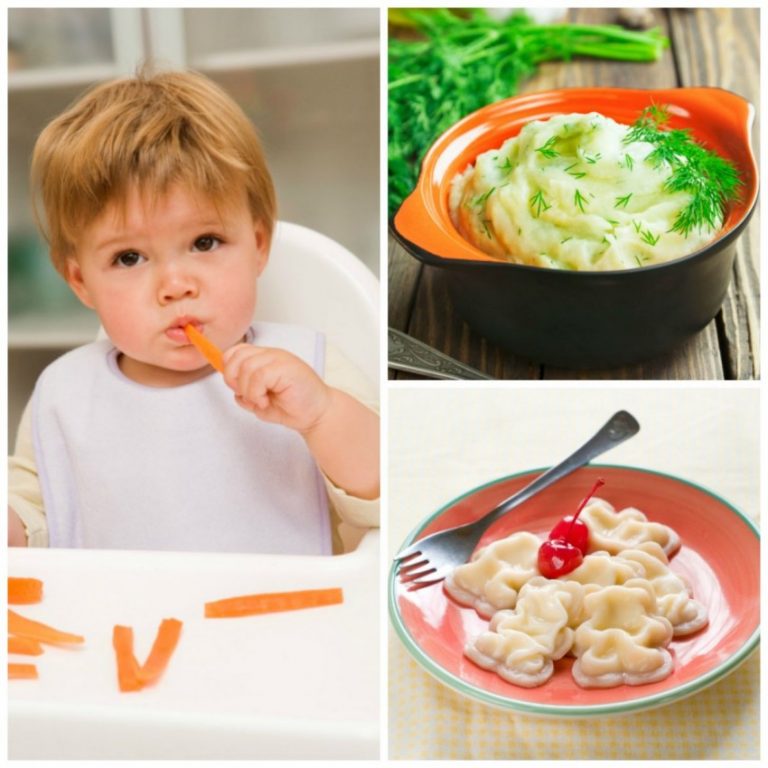 ru, a link to the site is required.
ru, a link to the site is required. © Nutriclub, 2020
You will also be interested
- Nutriclub - healthy nutrition and child development
- 0-12 months
- Lure
- unwanted foods for children
Stop list: what foods should not be given to a child under one year old
Komsomolskaya Pravda
On healthMom and baby: Health
June 26, 2019 16:20
Specialist explains
Sweets up to a year old are excluded. Photo: City Center for Medical Prevention
The first year of a baby's life is a very important and responsible period. At this time, the “ripening” of the whole organism takes place, the basis of its future health continues to form. A lot depends on the actions of parents, so moms and dads take the child’s nutrition very seriously, in which there are many rules and restrictions.
Dietary restrictions become relevant after about 6 months, when complementary foods are actively introduced to the child. Parents and grandmothers are always tempted to pamper the baby with sweets, surprise him, let him try new products and experience new tastes. This impulse must be limited, because the child can not do everything and not at the same time.
What should not be given to the baby? This was told by the specialist of the KZR Children's hospital No. 8, master, consultant on breastfeeding Natalia Novikova.
Photo: City Center for Medical Prevention
1. Confectionery and store-bought sweets
These are sweets, chocolate, pastries, cakes, store-bought pastries. Sugar in a child's diet is unacceptable, and confectionery products are dangerous with harmful confectionery fats, low-quality vegetable oils (palm, rapeseed), various artificial additives and dyes. Cocoa is a very allergenic product, it is excluded from the diet for up to 3 years.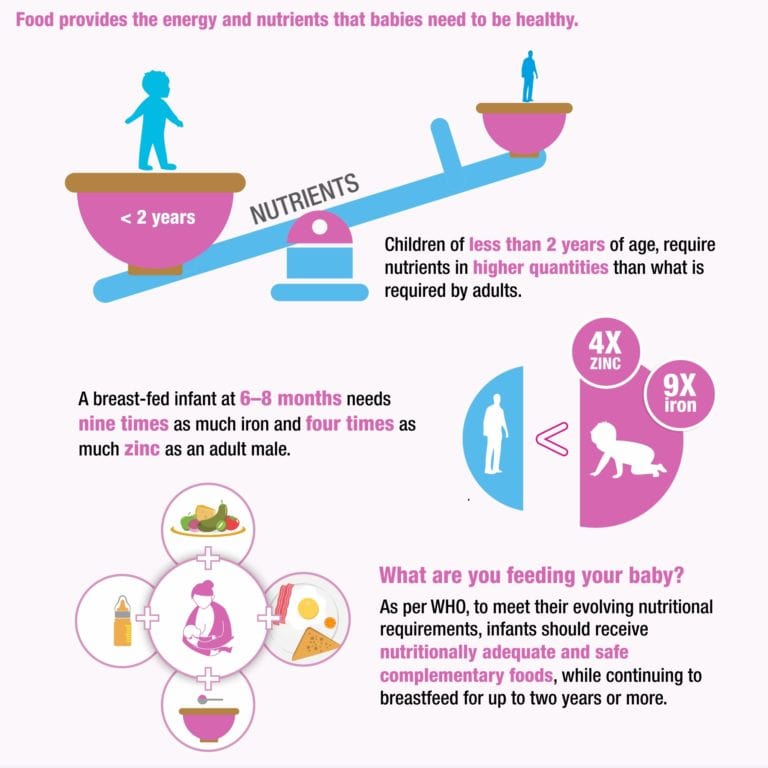 In addition, chocolate invigorates and can cause overexcitation.
In addition, chocolate invigorates and can cause overexcitation.
2. Salt and pickles
Salt causes fluid retention in the body, increases the load on the heart and blood vessels. It is important not only not to add salt to what is on the plate, but also to exclude salted crackers, straws, not to mention pickles, fish and caviar.
3. Sausages
Sausages and sausages should not be included in the baby's menu. Even high-quality sausages contain a lot of harmful additives: dyes, preservatives, flavor enhancers. These foods contain a lot of fat.
4. Fatty meats
These include lamb, pork, duck, goose. Fatty meat is very hard to digest and puts a lot of stress on the immature liver. This can lead to indigestion.
5. Potentially allergenic berries and fruits
These include berries and fruits with red pigment: strawberries, raspberries, red apples, tomatoes, red peppers, etc.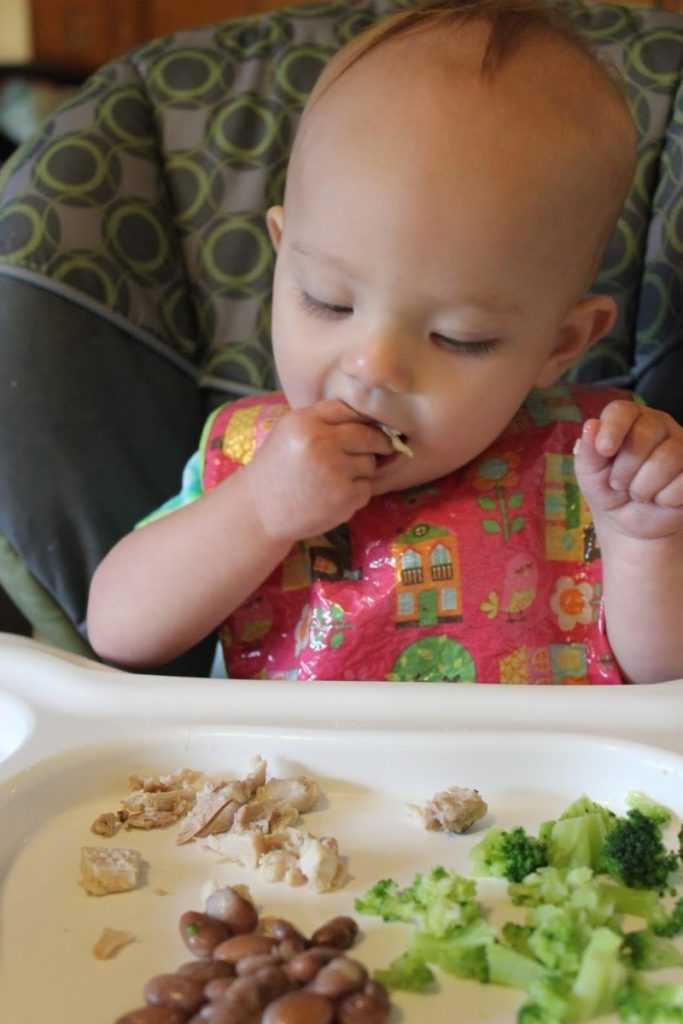 Citrus fruits and any exotic fruits that do not grow in our climate are also considered allergenic.
Citrus fruits and any exotic fruits that do not grow in our climate are also considered allergenic.
Photo: City Center for Medical Prevention
6. Seafood
Mussels, squids, shrimps can cause a high degree of allergic reactions. We introduce white sea fish in the last positions - from 9-10 months, very carefully.
7. Mushrooms
This is a heavy food, the fungus is difficult to digest and assimilate by the body. They absorb various poisons, heavy metals and radiation.
8. Products that cause gas
These are grapes, melons, legumes and white cabbage.
9. Seasonings, sauces, marinades, spices, ketchups, mayonnaises
Their composition is contrary to the principles of a healthy diet - dyes, flavorings, flavor enhancers, a lot of salt. Some seasonings can cause irritation of the gastrointestinal mucosa and allergic reactions.
10. Carbonated and sweet drinks
"Air" bubbles irritate the gastric mucosa. These drinks contain flavors and dyes, a lot of sugar.
These drinks contain flavors and dyes, a lot of sugar.
Photo: City Medical Prevention Center
11. Whole cow's milk
Cow's milk protein can cause an allergic reaction.
12. Chicken egg protein
This is a fairly strong allergen. Therefore, only the yolk is allowed in a limited amount.
13. Nuts
Quite allergenic and, moreover, a child can easily choke on them.
Photo: City Center for Medical Prevention
Age category of the site 18+
Online edition (website) registered by Roskomnadzor, certificate El No. FS77-80505 dated March 15, 2021
I.O. EDITOR-IN-CHIEF - NOSOVA OLESIA VYACHESLAVOVNA.
Messages and comments from site readers are posted without preliminary editing. The editors reserve the right to remove them from the site or edit them if the specified messages and comments are an abuse of freedom mass media or violation of other requirements of the law.

